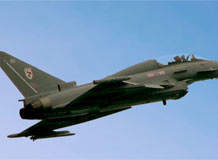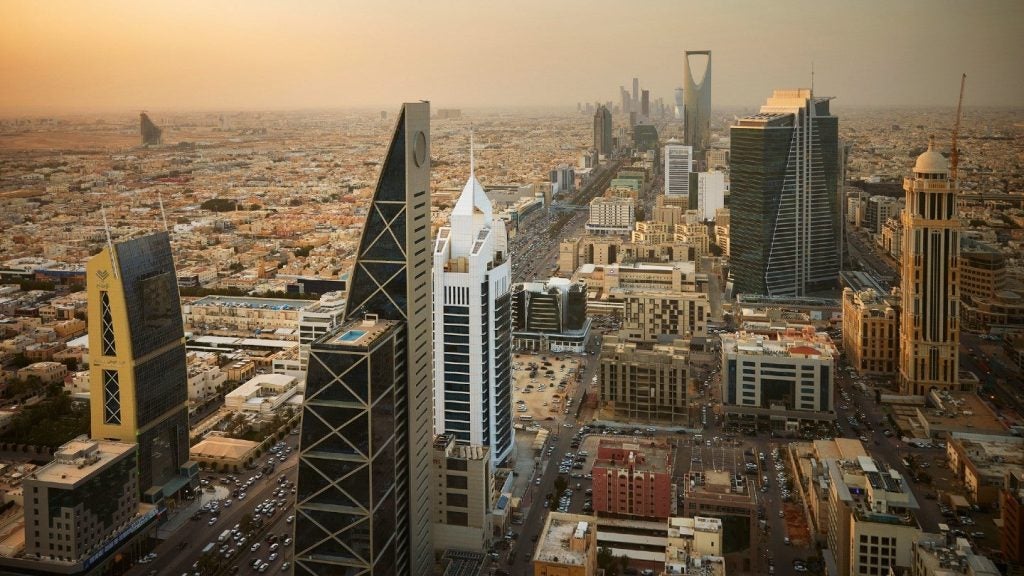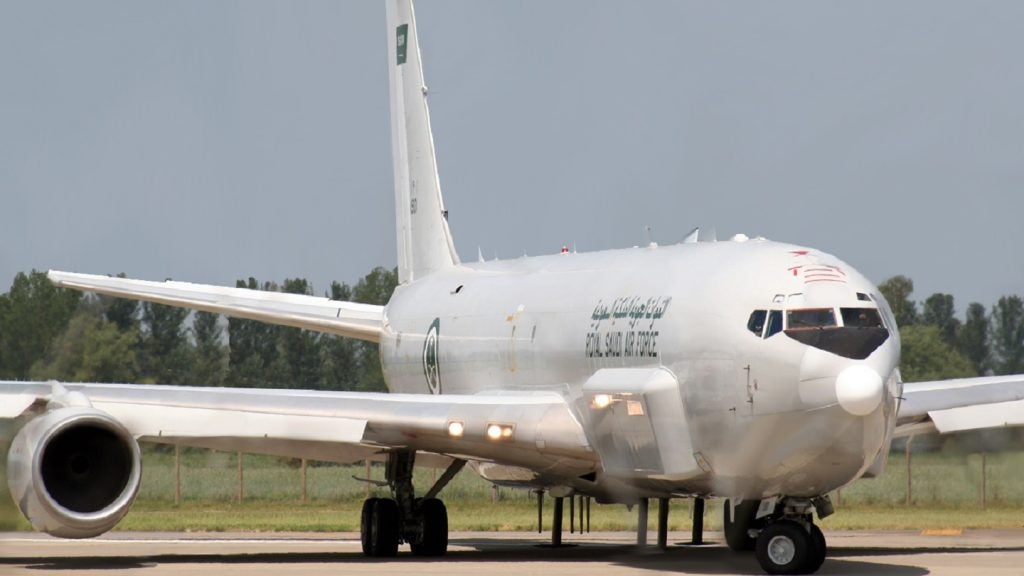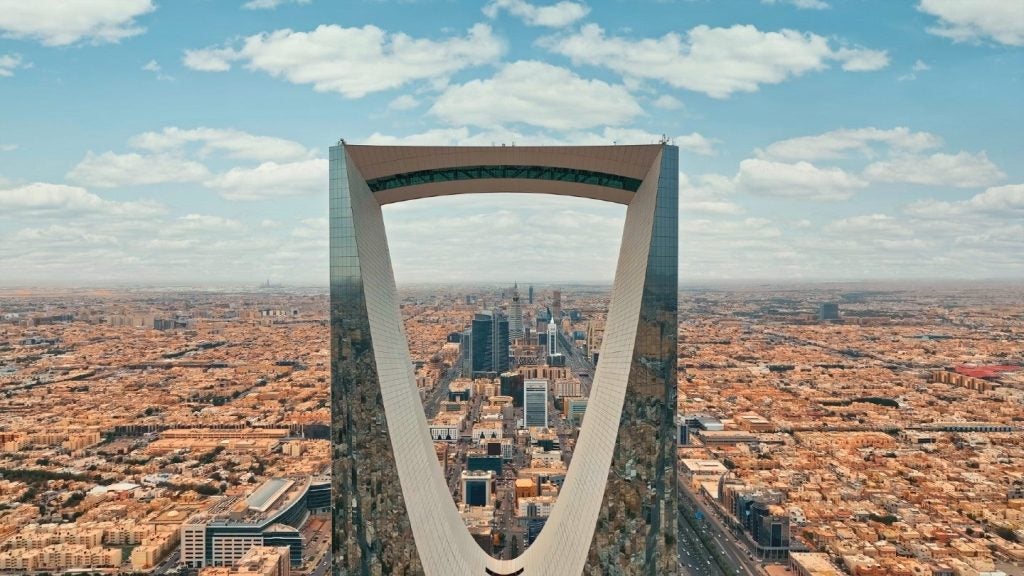
On 11 September 2007 defence ministers from Britain and Saudi Arabia signed a deal that will see BAE Systems supply Saudi Arabia with 72 Eurofighter jets. Although the initial sale is worth an estimated £4.43bn, add-ons like weapons supply and maintenance are expected to push up the value of the contract to nearer £20bn over the next 20 years, making it one of the largest export orders ever won by the UK.
But the deal, dubbed 'Project Salam' or 'al-Salam' (Saudi for peace), was not as peaceful as its name might suggest.
Although a preliminary contract had been signed in December 2005, protracted UK-Saudi negotiations broke down in 2006 amidst allegations of bribery and corruption. Only the intervention of then-British Prime Minister Tony Blair saved the monster deal from collapse.
So how did the Saudi royal family and the British prime minister become embroiled in a Serious Fraud Office (SFO) investigation? What does the deal actually entail? And what does it mean for the future of Saudi defence opportunities?
AL-SALAM ORIGINS
See Also:
The Eurofighters, also known as Typhoons, were a long time in production. The consortium that designed and built the planes, comprising BAE Systems, Alenia Aeronautica, EADS Deutschland and EADS Casa, was formed in 1986 but technical and political delays meant that the maiden flight of a prototype jet didn't take place until 1994.
How well do you really know your competitors?
Access the most comprehensive Company Profiles on the market, powered by GlobalData. Save hours of research. Gain competitive edge.

Thank you!
Your download email will arrive shortly
Not ready to buy yet? Download a free sample
We are confident about the unique quality of our Company Profiles. However, we want you to make the most beneficial decision for your business, so we offer a free sample that you can download by submitting the below form
By GlobalDataA production contract was signed in 1998 that saw the UK, Germany, Italy and Spain procure significant numbers of Typhoons, but exporting them proved to be more difficult. Greece ordered 60 in 1999, only to back out due to funding constraints. Austria ordered 18 in 2003, although this was later reduced to 15.
In December 2005 the Saudi government signed an agreement with their British counterparts to take 72 Typhoon jets to replace the Tornado ADV aircraft currently in service in the Royal Saudi Air Force.
The agreement also stated that BAE Systems would invest in local Saudi companies and provide suitable training for thousands of Saudi nationals by providing through-life support for key in-service equipments.
A statement released by the MOD said: "The governments of the Kingdom of Saudi Arabia and the UK signed an understanding document, intended to establish a greater partnership in modernising the Saudi Arabian armed forces."
However, whilst the megabucks deal had champagne corks popping in the offices of the MoD and BAE, trouble was brewing in the history vaults.
AL-YAMAMAH
The forerunner for ‘peace’ was ‘dove’. In 1985 Britain and Saudi Arabia signed the al-Yamamah (Saudi for dove) deal on the Caribbean island of Bermuda. Dubbed 'the deal of the century', the contract saw British Aerospace supply 72 Tornado fighters and 50 Hawk jet trainers in exchange for an annual payment of £1.02bn. In total the deal was worth over £40bn.
Al-Yamamah is Britain's biggest ever arms deal and it is also the most controversial. It was paid for by the delivery of up to 600,000 barrels of oil a day, earning it the derogatory 'arms-for-oil' tag, and has been persistently dogged by allegations of corruption and cover-ups.
In the early 1990s a report on Al-Yamamah by the National Audit Office was suppressed by Downing Street, a hitherto unprecedented step. With continuing rumours and allegations of wrong-doing circulating in the press, culminating in a newspaper article revealing the outlandish hospitality that had been lavished on Saudi prince Turki bin Nasser, the Serious Fraud Office launched a full investigation into Al-Yamamah in 2004.
RAMIFICATIONS
The SFO spent £2m on a two-year investigation into the dove deal. They uncovered evidence which they said linked the company now known as BAE to £1bn of payments to a US bank account owned by Saudi Prince Bandar and another £1bn to Swiss bank accounts held by agents of the Saudi royals. BAE and Saudi representatives have always denied any wrong-doing.
A year into the SFO inquiry into Al-Yamamah, Britain and Saudi signed the preliminary agreement for Al-Salam. However, once it became clear that the SFO were going to seek permission to investigate the suspicious Swiss bank accounts, the Saudis went cool on the Al-Salam deal. Towards the end of 2006, they began talking to the French about buying their Rafale jets instead of the Typhoons.
In December 2006 the SFO investigation into BAE was sensationally dropped, the SFO released a statement saying that the decision had been made 'following representations that have been made both to the attorney general and the director of the SFO concerning the need to safeguard national and international security'.
In January 2007 it emerged during parliamentary questions that the head of the SFO, Robert Wardle, was pressured seven times to drop the investigation, including three separate attempts by Prime Minister Tony Blair.
"These latest revelations show that the prime minister's fingerprints are all over this decision," said Liberal Democrat trade spokeswoman Susan Kramer. "It is clear that there was unacceptable pressure on the independent prosecutor."
THE AL-SALAM DEAL
With diplomatic relations restored Saudi Arabia indicated they were willing to continue with the Al-Salam deal, once Gordon Brown had become the new prime minister, as they wanted to be sure of support from within the highest echelons of the new British government. And so, on 11 September 2007, defence ministers from the UK and Saudi Arabia put pen to paper on the 'peace' deal.
The MoD has insisted that the terms of the contract remain confidential. However, it is clear that the contract breaks down into three areas: building, weaponry and maintenance. It is estimated that the jets are costing the Saudis £4.43bn to buy, with an extra £5bn to be spent on equipment and weaponry and a further £10bn on maintenance and servicing.
It is anticipated that the first 24 Typhoons will be built at BAE's factory in Warton, Lancashire, but the remaining jets will be assembled in Saudi Arabia. BAE is preparing for the Typhoon deliveries, with 4,600 staff already employed in Saudi Arabia. This agreement will be supported by substantial logistical and training packages, including the opportunity for RAF and Royal Saudi Air Force aircrews and ground technicians to train alongside each other in the UK.
"This new defence cooperation programme builds on a long and successful relationship between the British and Saudi Arabian governments and their armed forces," said a statement from the MoD. "The governments share key objectives on national security and actions to combat global terrorism. Saudi Arabia continues as an important strategic ally for the United Kingdom in the Middle East, playing a moderating leadership role in promoting regional stability."
THE FUTURE
Instability in the region and increased revenue from oil and gas reserves has seen Saudi Arabian spending on defence increase by 12% between 1996 and 2005. The latest figures, from 2005, show Saudi leaping above South Korea, Italy and Australia in the military spending stakes, splashing out over £10bn on defence.
Increased spending means there are more contracts up for grabs and the renewal of good relations between the UK and Saudi Arabia has whetted the appetite of BAE. They called the al-Salam deal an 'important milestone in [our] strategy to continue to develop Saudi Arabia as a key home market with substantial employment and investment in future in-Kingdom industrial capability'.
They've since invited Saudi officials on board HMS Daring, the first of six new destroyers being built for the Royal Navy by BAE. The Saudis were onboard for Daring's sea trials in September and are thought to be considering buying two of the £600m vessels.
However, there is a sizeable blot on the horizon, which may yet derail the UK-Saudi entente. In June it was announced that the US Department of Justice had launched a criminal inquiry into the alleged corrupt deals between BAE and Saudi Arabia. The investigation is expected to be long and arduous and its effects on the defence contract opportunities in the region could yet turnout to be as deadly as one of the Typhoon's air-to-ground missiles.







